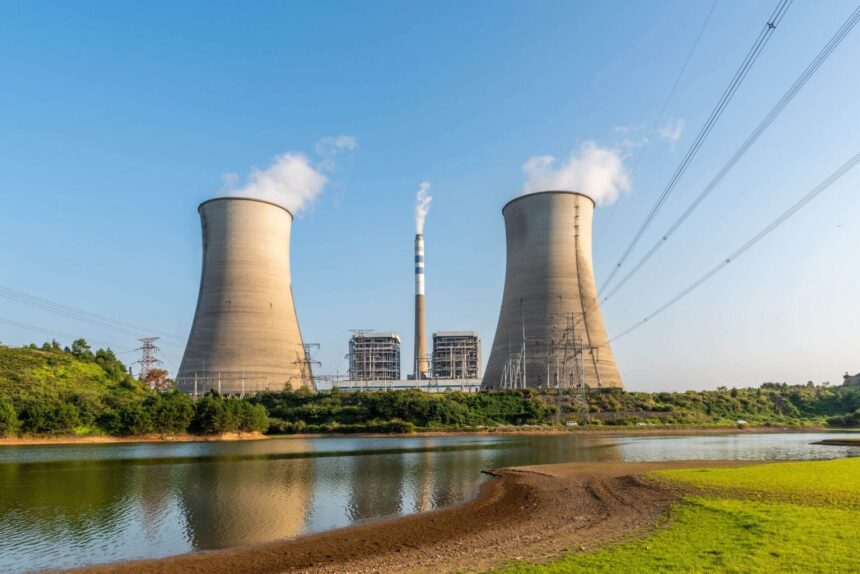Despite consistently being one of the world’s top producers of uranium, Namibia still suffers from a severe power deficit by depending mainly on hydropower and purchasing electricity from neighbouring countries that are themselves facing severe shortages. This strategy has worked thus far but is clearly unsustainable and evidently overlooks the massive potential of uranium as a clean and safe power source.
While the country has embarked on its green industrialisation drive and has increased renewable energy initiatives, any strategist will advise government not to “put all its eggs in one basket”. This means that achieving the State’s objective of universal electricity access for all Namibians by 2040, will require some innovative solutions, including harnessing the very uranium powering countries all over the world, except Namibia.
Firstly, the decades long practice of exporting Namibia’s uranium without any beneficiation may soon be over. This is after President Nangolo Mbumba recently told the visiting Chinese Foreign Minister, Wang Yi, that Namibia needs investment in nuclear power to boost its role in the global push to clean energy.
“We want to add value to our uranium for the peaceful development of nuclear energy,” Mbumba told the Chinese official during his week-long visit. Chinese companies own two of Namibia’s biggest uranium mines, Husab and Rossing. Last year, China General Nuclear Power Group formed a joint venture with NamWater to build a N$3 billion desalination plant to supply water to uranium mines and surrounding areas.
Secondly, nuclear plants have become smaller, safer, easier to build and simpler to operate. The technology is advancing so quickly that even major global corporates like Google, Amazon and even Rolls Royce have already signed up to use mini nuclear reactors for their escalating power needs, and if Namibia doesn’t act soon, it will be left in the dark while providing the very uranium that powers the rest of the world. Even one of US President Donald Trump’s executive orders on 12 January was to promote small, modular nuclear reactors as a viable power option.
Part of the investment attraction of these small modular reactors for corporations and small countries is that they generate under 300 megawatts of power. This is significantly less and requires a reduced capital investment compared to the 1000 to 1700 megawatt reactors that dominate the traditional nuclear scene.
A local energy analyst, David Jarret, noted that ultimately, Namibia’s nuclear choice will depend on effective energy planning aligned with economic realities and aspirations.
In response to New Era queries, Jarret noted that nuclear power is not new in Africa, citing South Africa’s Koeberg Nuclear Power Station and Egypt’s El Dabaa Nuclear Power Station scheduled to be commissioned by next year. Rwanda, through the Rwanda Atomic Energy Board (RAEB), signed an agreement with Dual Fluid to collaborate on the development of a demonstration nuclear reactor expected to be operational by 2026. Kenya has also made progress on its national nuclear infrastructure. Jarret added that several other African countries have indicated a desire to have nuclear power as a clean energy solution to their electricity shortfalls.
He continued that as with all industries, the need for regulatory support and action is also, and even more so present in the nuclear industry.
“One approach that seems to bridge the gap is that of setting up research plants. The International Atomic Energy Agency (IAEA) in a 107-page report as part of its Nuclear Energy Series, outlines the considerations and milestones to be reached for development of a research reactor. The first milestone is justification. This means that the reactor should meet the needs of all the potential stakeholders and align with the financial resources available for such an endeavour,” Jarret stated.
Commenting specifically on the Namibian scenario, Jarret stated that harnessing Namibia’s uranium to alleviate its power deficit is a financial burden barrier and not a technical one. This is in contrast to the mines and energy ministry’s stance that nuclear energy is both technically and financially impractical for Namibia.
Meanwhile, in terms of safety, the World Nuclear Association (WNA) has emphasised that a commercial-type power reactor simply cannot under any circumstances explode like a nuclear bomb. This is because nuclear fuel is not enriched beyond about 5%, and much higher enrichment is needed for explosives.
“The use of nuclear energy for electricity generation can be considered extremely safe. Every year, several hundred people die in coal mines to provide this widely used fuel for electricity. There are also significant health and environmental effects arising from fossil fuel use. Contrary to popular belief, nuclear power saves lives by displacing fossil fuel from the electricity mix,” the WNA states.


